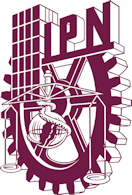Por favor, use este identificador para citar o enlazar este ítem:
http://repositoriodigital.ipn.mx/handle/123456789/11629| Título : | Caracterización de la convención matemática como un mecanismo de construcción de conocimiento. El caso de su funcionamiento en los exponentes |
| Autor : | Farfán Márquez, Rosa María |
| Fecha de publicación : | 16-ene-2013 |
| Descripción : | Within this research work, the characterization of a mechanism of construction of the mathematical knowledge is introduced, which we have called the mathematical convention. Such a characterization is performed from the socialepistemological perspective, which has been constructed within the core of the Educational Mathematics. Such approach centers the attention on the characterization of “that which allows the construction of the mathematical knowledge”. Such general focus of research supposes that from the beginning there is a need to take in consideration every relation or restriction into which the persons and the communities are immerse during the process of constructing what is considered as their new knowledge. The complexity of such relations may be particularly broad, but the evidences have shown that it is productive to establish that the basic relations include: 1) the ways of communicating the knowledge, 2) the knowledge by itself, 3) the particular way of thinking of the human being, and 4) the social and cultural environment. In a synthetic manner, reference is made respectively to the didactic, the epistemological, the cognitive and the social components. This basic model seeks for a way of characterizing the stages that would allow the construction of knowledge within their school context, as there is a proposal that the determination of principles, which regulate the construction of the knowledge, provides the necessary elements to predict and intervene in the evolution of a community that is in the process of the construction of mathematical knowledge. The peculiarity of this work lies in its very specific centering on the construction of knowledge that is intimately linked with the processes of theorization of the mathematical contents and that has been found in the nature and in the functions of the rules of transformation for the non-natural exponents (m, n natural numbers, a>0): R1) a0 = 1, R2) a -n = 1/a n & 1/a n = a -n, R3) am / n = n am & n am = am/ n . According to our theoretical suppositions, the characterization is performed throughout three complementary studies related to the rules of transformation for the non-natural exponents: 1) That which is centered in its social-genesis, 2) that which takes in consideration its insertion in the transmission and diffusion of the mathematical knowledge, 3) The one that takes in consideration the way of thinking of the persons. On the written work appears a presentation with great detail on how the characterization has emerged from the above mentioned studies. As an overview, our main result is the following, and can be summarized this way: the meaning of the non-natural exponents is agreed-on in order to facilitate the construction of unified bodies with a logical mathematical knowledge (this is, for the systemic integration of knowledge). This is the reason why we designate in a synthetic way the mechanism of construction with the expression: mathematical convention. The forms or executions of this mechanism can be anything from a definition, to an axiom, or an interpretation, or a restriction or other. The selection of the form depends on the nature of the organization of the different types of knowledge. The source of all the above is an implicit principle of rationality that establishes that in mathematics, the greater degree of unity is searched (meaning, without a contradiction) at the moment of including mathematical objects that are new to the present body of skills. The searching of integration, which is a seeking of relations, may have two consequences: 1) The rupture caused by leaving aside a meaning in place of other one which eventually is built for the task of integration, this means, to change the centering of significance, and 2) The continuity, as the significance in the task of integration is kept. Then, the mathematical convention in so many products, may be interpreted as an emerging property for the establishment of a relation of continuity, or of rupture of meanings; which substantially depends of the epistemological context of the construction of meanings: in the first construction (the social-genesis), in the mathematical theory, in the school, in the textbooks, or in the personal knowledge of the students and professors. |
| URI : | http://www.repositoriodigital.ipn.mx/handle/123456789/11629 |
| Otros identificadores : | http://hdl.handle.net/123456789/1160 |
| Aparece en las colecciones: | Doctorado |
Ficheros en este ítem:
| Fichero | Descripción | Tamaño | Formato | |
|---|---|---|---|---|
| martinez_2003.pdf | 1.76 MB | Adobe PDF | Visualizar/Abrir |
Los ítems de DSpace están protegidos por copyright, con todos los derechos reservados, a menos que se indique lo contrario.

